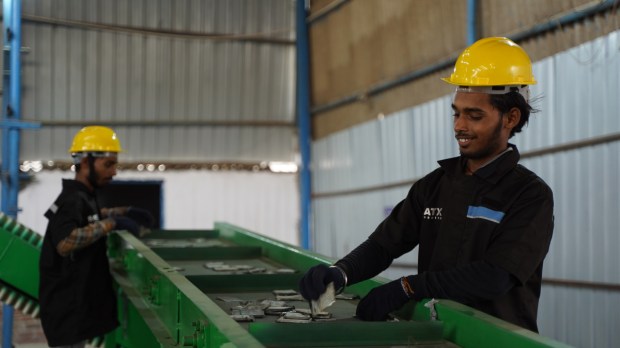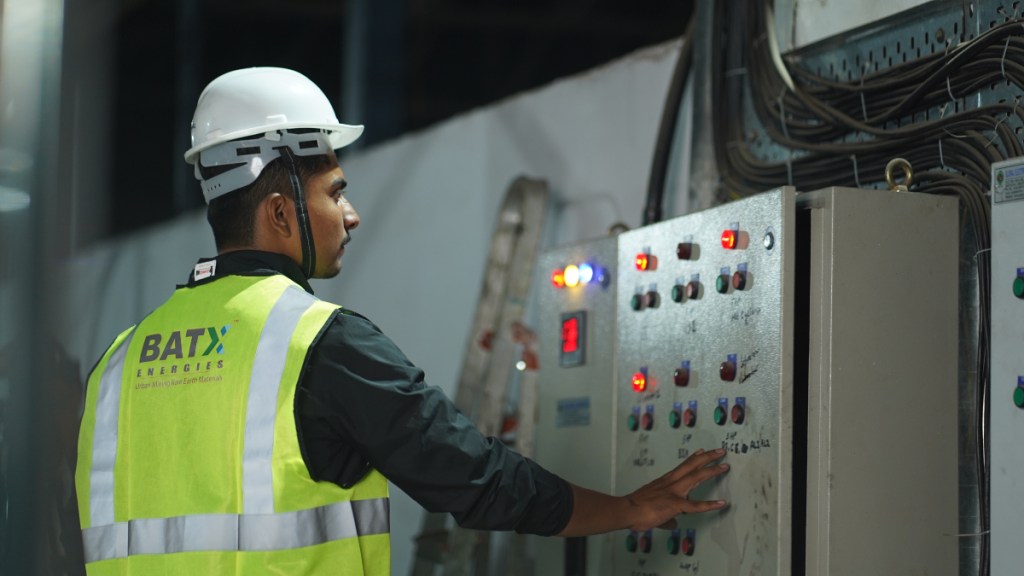By Utkarsh Singh
In recent years, the global shift toward electric vehicles (EVs) has offered a promising solution for reducing carbon emissions within the transportation sector. However, the environmental implications arising from the production and disposal of lithium-ion batteries, the very power source behind these EVs, have emerged as a significant cause for concern. Compounded by the mining industry’s association with adverse environmental and social impacts in the pursuit of essential battery minerals, the need for exploring the significance of lithium-ion battery recycling becomes paramount. In this article, we delve into the pivotal role of lithium-ion battery recycling in addressing the carbon footprint linked to EVs and the pressing environmental challenges posed by the mining sector.
Environmental Impacts of Mining Operations
The mining industry, responsible for extracting essential materials such as lithium, cobalt, and nickel, has grappled with a host of environmental, social, and governance (ESG) challenges. These issues encompass a range of problems, including human rights violations, contributions to armed conflicts, environmental contamination, deforestation, and other harmful consequences. Failing to address these concerns not only poses a threat to the transition to cleaner energy sources but also jeopardizes the well-being of the environment and communities residing near mining sites.
To confront these challenges, several mining giants such as BHP, Glencore, Rio Tinto, and Vale have acknowledged the critical nature of these issues. These companies have pledged to achieve net-zero emissions by 2050 and have implemented various measures to improve the transparency of ESG-related information. Furthermore, efforts to foster diversity and inclusivity within their workforces and reduce occupational hazards signify a notable stride in the industry’s sustainability endeavors.
Navigating Transparency Issues in Mineral Resource Reporting
Despite some positive strides in the sustainability commitments of mining companies, there persist significant hurdles in reporting and transparency. Presently, most reported data is consolidated at the company level, merging information from diverse mineral resources across various regions. This amalgamation poses a challenge in evaluating the sustainability performance of individual mining operations accurately.
Additionally, sustainability metrics often prioritize high-volume commodities such as iron ore and coal, causing critical minerals essential for lithium-ion batteries to receive inadequate representation. Compounding the issue, some companies do not disclose sustainability information, significantly impeding the comprehensive evaluation of Environmental, Social, and Governance (ESG) performance across the industry.

The multitude of standards and ratings, combined with obscure company reporting practices, further exacerbate the complexity of the situation. Investors are progressively prioritizing ESG performance, recognizing its direct correlation to supply chain and reputational risks. Consequently, ESG performance can influence the accessibility and cost of capital, potentially resulting in the emergence of “green premiums” for companies with exemplary sustainability practices.
Significance of Lithium-Ion Battery Recycling
Lithium-ion battery recycling is pivotal in mitigating the environmental impact of mining and the carbon footprint associated with these batteries. Its importance is highlighted through various key points:
- Resource Conservation: Recycling lithium-ion batteries facilitates the recovery of valuable metals such as lithium, cobalt, and nickel. This reduces the dependency on additional mining activities, thereby preserving ecosystems and conserving finite resources.
- Energy Savings: By reducing the energy needed for mining and processing, recycling lithium-ion batteries significantly curtails the overall carbon footprint. This helps to minimize the environmental impact associated with the energy-intensive extraction and refinement of minerals.
- Reduction of Environmental Harm: Opting for battery recycling lessens the demand for new mining operations, thereby mitigating various detrimental consequences like environmental contamination, deforestation, and air and water pollution commonly associated with mining activities.
- Mitigation of ESG Risks: Embracing recycling practices and prioritizing sustainably sourced materials can position mining companies favorably in terms of attracting investment. Recycling lithium-ion batteries serves as a tangible demonstration of a commitment to managing ESG risks and upholding environmental responsibility.
- Circular Economy Integration: Incorporating lithium-ion battery recycling into the circular economy model minimizes waste production and reduces the need for new raw materials. This fosters a more sustainable economic system based on the principles of reuse, remanufacturing, and recycling.
- Promotion of Innovation: The ongoing evolution of recycling technologies not only facilitates effective battery management but also fosters innovation and job creation within the green technology sector, driving industry advancement and sustainable employment opportunities.
- Carbon Emission Reduction: Lithium-ion battery recycling plays a significant role in curbing greenhouse gas emissions associated with mining and battery production. This reduction contributes substantially to global efforts aimed at addressing climate change and fostering a more sustainable future.

Source:- IEA & KPMG report
Conclusion: Advancing Sustainable Practices in the Electric Vehicle Industry
The global shift toward electric vehicles marks a significant stride in curbing carbon emissions within the transportation sector. Nonetheless, the environmental and social impacts stemming from the mining industry, a crucial supplier of materials for lithium-ion batteries, demand immediate attention. It remains critical for mining companies to continually enhance their sustainability initiatives and uphold stringent ESG standards, ensuring responsible and ethical practices across the sector.
Lithium-ion battery recycling emerges as a pivotal contributor in mitigating the carbon footprint associated with electric vehicles. Its role in conserving resources, minimizing energy consumption, and reducing environmental harm underscores a sustainable and responsible approach to battery production. Moreover, the increasing emphasis from consumers, investors, and policymakers on ESG considerations positions battery recycling as a means to bolster the reputation and financial standing of mining companies. Ultimately, a steadfast commitment to recycling not only benefits the environment but also underpins the promising future of clean energy transportation.
The author is Co-Founder & CEO of Batx Energies
(Disclaimer: The views and opinions expressed in this article are solely those of the original author. These views and opinions do not represent those of The Indian Express Group or its employees.)









